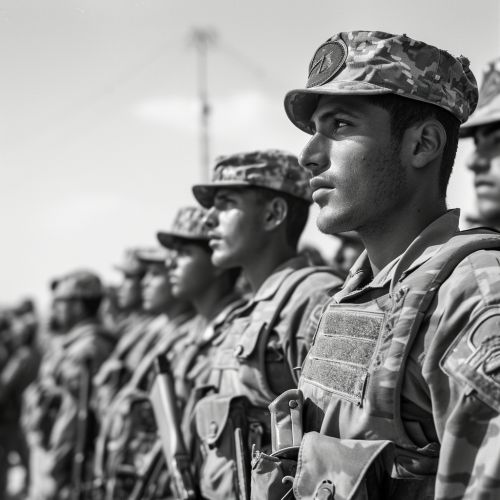Ahmed Hassan al-Bakr
Early Life
Ahmed Hassan al-Bakr was born on July 1, 1914, in Tikrit, a city in the Salah ad Din province of Iraq. He hailed from a poor family of farmers and was the third of four children. His father was a devout Sunni Muslim and instilled in him the values of his faith from an early age. Al-Bakr's early education took place in a traditional Quranic school, where he learned to read and write Arabic and studied the teachings of Islam.
Military Career
In 1938, al-Bakr graduated from the Iraqi Military Academy, marking the beginning of his military career. He served in the Iraqi army during World War II and was stationed in Palestine. During this time, he was exposed to Arab nationalism, a political ideology that advocates for the unity of Arab people and countries. This experience had a profound impact on him and shaped his political beliefs in the years to come.


In the late 1940s, al-Bakr, along with several other military officers, formed a secret political organization known as the Free Officers Movement. This group was inspired by the Egyptian Free Officers Movement, which had successfully overthrown the monarchy in Egypt in 1952. The Iraqi Free Officers Movement aimed to end the monarchy in Iraq and establish a republic.
Political Career
In 1958, the Free Officers Movement, led by General Abdul Karim Qasim, successfully overthrew the monarchy in the 14 July Revolution. Following the revolution, Qasim became the Prime Minister of Iraq and al-Bakr was appointed as his deputy. However, ideological differences soon emerged between the two leaders, leading to al-Bakr's resignation in 1959.
In 1963, a group of officers from the Ba'ath Party, including al-Bakr, staged a coup against Qasim's government. The coup was successful, and al-Bakr was appointed as the President of Iraq. However, his presidency was short-lived as he was overthrown in a counter-coup later that year.
In 1968, al-Bakr, along with his cousin Saddam Hussein, led another successful coup against the government. This time, al-Bakr's presidency lasted for 11 years, during which he implemented several reforms aimed at modernizing Iraq and strengthening its economy.
Presidency
During his presidency, al-Bakr pursued a policy of pan-Arabism, seeking to unite the Arab world under a single political entity. He also implemented socialist policies, nationalizing key industries and implementing land reforms. Under his leadership, Iraq experienced significant economic growth, largely due to the increase in oil prices in the 1970s.
However, al-Bakr's presidency was also marked by political repression. His government was known for its brutal suppression of political dissent, and human rights abuses were widespread. In 1979, al-Bakr was forced to resign due to health issues and was succeeded by his cousin, Saddam Hussein.
Death and Legacy
Al-Bakr died on October 4, 1982. His death was officially attributed to a long illness, but there were rumors that he was poisoned. Despite the controversies surrounding his presidency, al-Bakr is remembered as a key figure in the modern history of Iraq. His policies have had a lasting impact on the country and continue to influence its political landscape.
